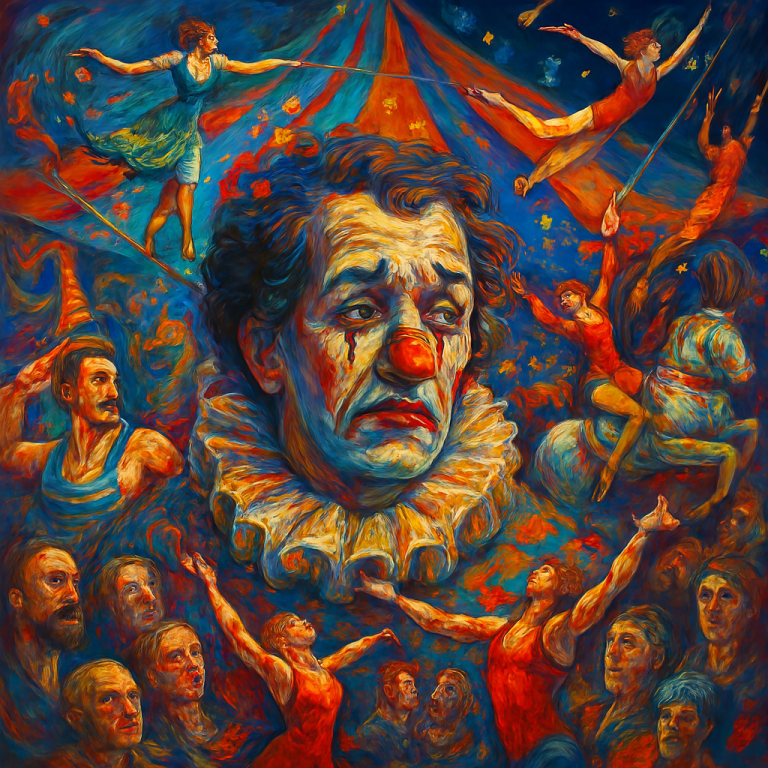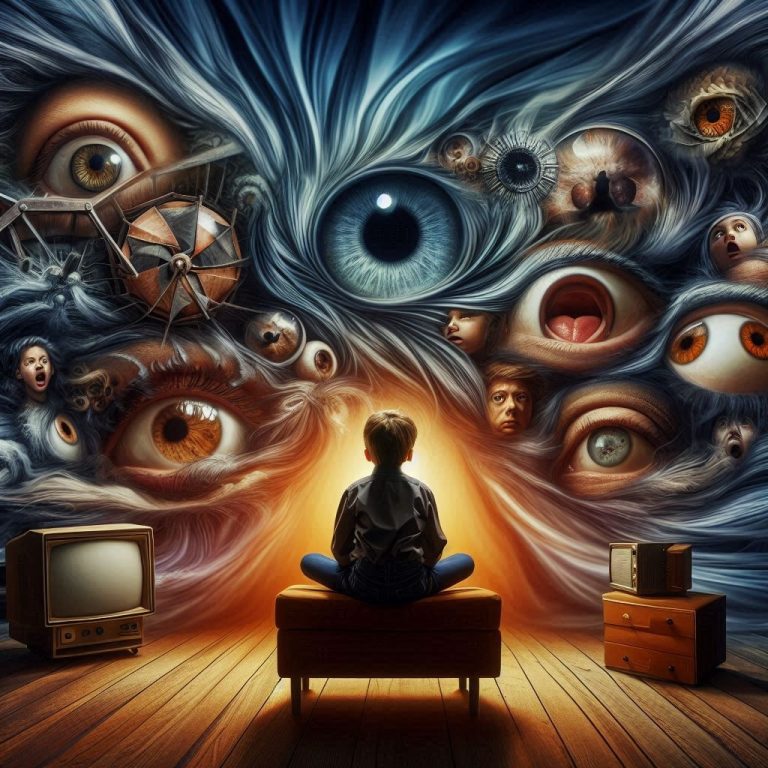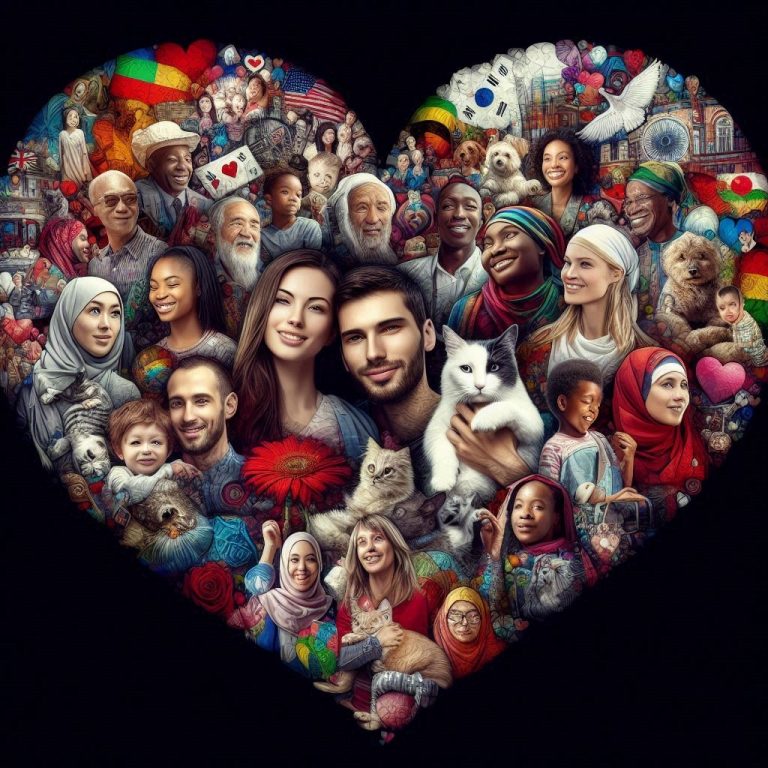The Mystical Magical Psychology of Astrology
Why Celestial Belief Systems Reshape Human Behavior
Introduction
Astrology is a symbolic system that interacts with core psychological functions—identity, emotion, and perception. It does not rely on empirical validation, yet it persists across cultures due to its emotional utility. People turn to astrology during periods of uncertainty, seeking structure in chaos and meaning in randomness. The zodiac offers archetypes that help individuals define themselves and interpret others. Celestial movements become metaphors for internal shifts, creating a rhythm for emotional processing. Astrology is not a science, but it is a language—one that speaks to the subconscious. It offers narrative scaffolding, emotional vocabulary, and symbolic coherence. This post explores how astrology reshapes behavior through psychological mechanisms, not planetary influence.

Symbolic Projection and Pattern Recognition
Humans are naturally inclined to find patterns, even in unrelated data. Astrology satisfies this tendency by offering symbolic structure to randomness. Celestial symbols become emotional placeholders, helping people interpret moods, events, and relationships. When someone reads their horoscope, they engage in symbolic projection, assigning personal meaning to general statements. This act creates a feedback loop, where belief shapes perception and perception reinforces belief. The zodiac becomes a lens through which experience is filtered and interpreted. This symbolic mapping is not arbitrary—it reflects a deep cognitive need for coherence. Astrology thrives because it mirrors the brain’s desire to connect dots and construct meaning.
Identity Construction Through Archetypes
Astrology provides archetypes that individuals adopt as part of their self-concept. Each zodiac sign carries traits that people internalize and express in daily life. These traits become part of personal narratives, shaping how individuals see themselves and how they behave. Identity formation is reinforced through repetition, social feedback, and symbolic association. People often describe themselves using astrological language, even when they don’t fully believe in it. The zodiac offers a framework for self-definition, helping individuals articulate personality and emotional style. This symbolic adoption is emotionally charged and psychologically active. Astrology becomes a mirror for identity, reflecting both aspiration and self-perception.
Emotional Language and Symbolic Regulation
Astrology offers vocabulary for emotional states that might otherwise remain unspoken. Phrases like “Mercury retrograde” or “moon in Cancer” become shorthand for complex feelings. This symbolic language helps people externalize emotions, making them easier to understand and manage. Emotional regulation improves when individuals can name and frame their experiences. Astrology provides rhythm and structure to emotional life, linking moods to planetary cycles. These symbolic markers create predictability, reducing anxiety and enhancing emotional clarity. People feel validated when their internal states align with astrological descriptions. Astrology becomes a tool for emotional containment and symbolic expression.

Narrative Coherence and Life Storytelling
Astrology helps people construct coherent life narratives by linking personal events to celestial movements. This symbolic storytelling creates a sense of destiny, even if metaphorical. Individuals use astrology to explain past decisions, current challenges, and future hopes. The zodiac becomes a timeline, turning randomness into meaning. This narrative coherence stabilizes identity and deepens emotional insight. Astrology offers a mythic structure for personal growth and transformation. It helps people see their lives as part of a larger symbolic journey. The system becomes a personal mythology, guiding behavior and belief through symbolic continuity.
Social Bonding and Shared Language
Astrology functions as a social glue, creating shared language and communal rituals. People bond over zodiac signs, birth charts, and planetary transits. This shared symbolism fosters connection, especially in digital and cultural spaces. Astrology becomes a shorthand for emotional expression and identity alignment. It creates in-groups and out-groups, reinforcing social dynamics and symbolic kinship. When someone says “we’re both water signs,” they invoke a sense of emotional resonance. These symbolic affiliations deepen relationships and enhance social understanding. Astrology helps people feel seen and connected in a fragmented world.
Temporal Anchoring and Predictive Comfort
Astrology provides temporal anchors that help individuals navigate uncertainty. Planetary cycles offer symbolic milestones—retrogrades, eclipses, and transits—that structure time. These markers create rhythm and predictability in emotional and behavioral patterns. People feel more in control when they can link experiences to celestial movements. Astrology becomes a calendar of emotional expectation, offering symbolic structure to life events. This predictive comfort reduces anxiety and enhances psychological resilience. Individuals prepare for change by aligning with astrological rhythms. The system offers symbolic stability in an unpredictable world.
Cognitive Bias and Confirmation Loops
Astrology interacts with cognitive biases, especially confirmation bias and selective attention. People tend to notice information that supports their beliefs and ignore contradictions. When a horoscope resonates, it feels validating; when it doesn’t, it’s dismissed. This selective filtering reinforces belief and emotional investment in the system. Astrology becomes a self-fulfilling framework, shaped by psychological filters. The Barnum effect also plays a role, where vague statements feel personally tailored. These biases create a loop of symbolic confirmation and emotional reinforcement. Astrology persists because it aligns with how the brain processes belief and meaning.
Symbolic Authority and Decision-Making
Astrology influences decision-making by offering symbolic authority and emotional guidance. People consult birth charts before choosing partners, jobs, or travel dates. The system provides clarity in moments of doubt, reducing decision fatigue. Astrology becomes a trusted advisor—not because it’s accurate, but because it feels meaningful. This symbolic guidance increases confidence and emotional alignment. Individuals feel empowered when their choices reflect celestial cues. Astrology shapes behavior through symbolic validation, not empirical logic. It offers a framework for intuitive decision-making and emotional clarity.

Emotional Safety and Psychological Containment
Astrology creates emotional safety by offering symbolic containment for difficult experiences. When someone says “Saturn is testing me,” they’re using astrology to process pain. This containment reduces emotional overwhelm and increases resilience. Astrology provides metaphors that help individuals frame suffering in manageable terms. It becomes a coping mechanism, offering symbolic explanations for internal chaos. People feel less alone when their struggles align with astrological narratives. The system validates emotional complexity without judgment. Astrology becomes a therapeutic container for symbolic healing.
Cultural Ritual and Symbolic Continuity
Astrology functions as a cultural ritual, linking individuals to collective history and myth. It carries symbolic continuity across generations and civilizations. People engage with astrology not just personally, but culturally and communally. It becomes part of festivals, traditions, and storytelling practices. Astrology offers a sense of timelessness and rootedness in symbolic heritage. The zodiac reflects ancient cosmologies that still resonate emotionally. These rituals reinforce identity and emotional connection to the past. Astrology becomes a bridge between personal experience and cultural mythology.
Symbolic Detox and Emotional Release
Astrology facilitates symbolic detox—an emotional release through celestial language and ritual. People use full moons and retrogrades as moments of reflection and letting go. These symbolic events create space for emotional cleansing and renewal. Astrology offers permission to feel, release, and transform. It becomes a container for emotional transitions and symbolic closure. Individuals mark endings and beginnings through astrological cycles. This detox is not mystical—it’s psychological and symbolic. Astrology helps people process change with emotional clarity and ritual depth.
Mythic Overlay and Personal Meaning
Astrology overlays myth onto personal experience, creating depth and emotional resonance. The zodiac signs carry mythic stories that individuals internalize and embody. These stories become part of personal identity and emotional narrative. Astrology turns mundane events into symbolic milestones, enriching everyday life. People see themselves as heroes, healers, or rebels based on astrological archetypes. This mythic overlay adds symbolic weight to personal choices and challenges. Astrology becomes a source of meaning, not because it’s true, but because it’s felt. The myth matters more than the mechanics.
Symbolic Adaptation and Emotional Growth
Astrology adapts to personal growth, offering new interpretations over time. As individuals evolve, so do their relationships with celestial symbols. The system becomes a mirror for transformation and emotional maturity. People revisit birth charts and transits with fresh eyes, finding new meaning. Astrology grows with the individual, offering continuity and symbolic evolution. It reflects emotional shifts and psychological development. The symbols remain, but the stories change. Astrology becomes a lifelong companion in symbolic self-discovery.
Symbolic Permission and Emotional Honesty
Astrology gives people permission to feel what they might otherwise suppress. When someone says “I’m emotional because the moon is in Pisces,” they’re allowing vulnerability. This symbolic permission creates emotional honesty and psychological safety. Astrology legitimizes feelings without judgment, offering a safe space for expression. It helps individuals articulate moods that might be difficult to explain otherwise. The system encourages introspection and emotional transparency. People feel validated when their emotions align with astrological language. Astrology becomes a tool for emotional authenticity.
Symbolic Rebellion and Identity Differentiation
Astrology can be used to rebel against norms and assert individuality. People may embrace unconventional traits linked to their signs as a form of symbolic defiance. Saying “I’m a Scorpio, deal with it” becomes an emotional declaration. Astrology offers a framework for standing out, not just fitting in. It helps individuals differentiate themselves through symbolic identity. This rebellion is not aggressive—it’s expressive and emotionally charged. Astrology becomes a tool for self-definition and symbolic resistance. It empowers people to own their emotional complexity.
Symbolic Humor and Emotional Lightness
Astrology provides a playful lens for emotional experience and social interaction. Memes, jokes, and casual references to signs create emotional lightness and connection. This humor doesn’t diminish the system—it enriches it by making symbolic language accessible. People use astrology to laugh at their quirks, bond with others, and diffuse tension. Humor becomes a gateway to emotional honesty, allowing vulnerability to surface in a safe, communal way. The zodiac becomes a toolkit for self-deprecating insight and shared amusement. This symbolic levity strengthens emotional resilience by reframing discomfort with wit. Astrology’s humor is not trivial—it’s a form of emotional intelligence.

Symbolic Intimacy and Relationship Framing
Astrology shapes how people interpret relationships by offering symbolic frameworks for emotional dynamics. Compatibility charts and synastry readings become tools for understanding attraction, conflict, and connection. These symbolic maps help individuals articulate relational patterns that might otherwise remain vague. Astrology provides language for emotional needs, boundaries, and shared rhythms. It encourages reflection on how personalities interact and evolve together. People use astrological cues to navigate intimacy, often finding comfort in symbolic alignment. This framing doesn’t dictate relationships—it enriches them with emotional nuance. Astrology becomes a mirror for relational growth and symbolic resonance.
Symbolic Forecasting and Emotional Readiness
Astrology offers symbolic forecasting—not to predict events, but to prepare emotionally. People use transits and progressions to anticipate mood shifts, relational changes, and internal transitions. This readiness increases emotional resilience by creating symbolic structure around uncertainty. Astrology becomes a psychological weather report, helping individuals brace for emotional storms or embrace symbolic sunshine. The system encourages proactive reflection and emotional planning. People feel more grounded when they can link internal states to symbolic cycles. Forecasting becomes a ritual of emotional preparation, not prediction. Astrology helps people meet the future with symbolic clarity and emotional strength.
Symbolic Integration and Personal Ritual
Astrology integrates into personal rituals, shaping how individuals mark time, reflect, and renew. People align journaling, meditation, and goal-setting with lunar phases or planetary movements. These rituals create emotional rhythm and symbolic coherence in daily life. Astrology becomes a framework for intentional living, linking inner work to cosmic metaphor. The system encourages mindfulness through symbolic timing and emotional alignment. Personal rituals gain depth when anchored in astrological language. Individuals feel more connected to themselves and their environment through these symbolic practices. Astrology transforms routine into ritual, offering emotional meaning to everyday actions. It becomes a companion in symbolic self-care.
Symbolic Closure and Emotional Resolution
Astrology facilitates symbolic closure by helping individuals frame endings with emotional clarity. People use planetary transitions to mark the completion of relationships, projects, or emotional cycles. This symbolic framing provides language for grief, acceptance, and transformation. Astrology offers metaphors that soften emotional impact and encourage reflection. Closure becomes a ritual, not just a reaction. Individuals feel more empowered when they can link emotional resolution to symbolic timing. Astrology helps people say goodbye with grace, understanding, and emotional depth. It becomes a tool for healing through symbolic finality.
Conclusion
Astrology reshapes human behavior not through planetary influence, but through symbolic architecture. It offers emotional language, identity scaffolding, and narrative coherence. The system interacts with psychological mechanisms that shape belief, behavior, and emotion. Whether embraced fully or used casually, astrology leaves a mark. It becomes part of how people see themselves and others. This influence is not mystical—it’s cognitive, emotional, and symbolic. Astrology persists because it speaks to the human need for meaning, connection, and transformation. The stars remain distant, but the stories they inspire live within us.
Join the Discussion
How has astrology shaped your emotional language or personal narrative? Do you use it as a mirror, a map, or a myth? Emotional resonance often begins with symbolic reflection. What stories have the stars helped you tell?
#AstrologyPsychology #SymbolicSystems #EmotionalLanguage #IdentityThroughArchetypes #NarrativeHealing #CelestialFrameworks #SymbolicResonance #EmotionalMapping #AstrologyAndSelfhood #MythicIdentity #SymbolicClosure #AstrologyAndRelationships #EmotionalForecasting #SymbolicRituals #PsychologicalSymbolism #AstrologyAndGrowth #SymbolicHumor #AstrologyAndBelonging #EmotionalResonance #SymbolicHealing







